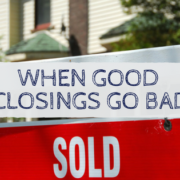Is your Condo Association prepared for HB 1237?
An important new law was passed this past Saturday. Governor Rick Scott signed HB 1237 to create criminal penalties to punish certain actions of condominium board members. The spirit of the law is to reduce condo board corruption across the state of Florida.
About the Legislation
HB 1237 shuts off alleged loopholes within the law that made it challenging for state prosecutors to pursue fraud or embezzlement charges against condominium board members. The new rules represent a drastic overhaul that has the potential to make life quite challenging for those involved in condo associations.
The new law states that board members are subject to criminal penalties if they solicit kickbacks, deny an inspection of official records, destroy such records or forge voting certificates or ballot envelopes in board elections. Associations with 150 or more units must publish numerous association documents on a website that is easily accessible by all association members.
Enforcement is now handled by state prosecutors rather than the Department of Business and Professional Regulation. It was previously difficult to enforce and prosecute issues like the forgery of board elections and conflicts of interest. The new law is a boon to condo association residents concerned about condo board members’ actions like tampering with ballots, altering records, forging signatures and beyond.
What The Legislation Means to Condominium Board Members
Condo association tenant laws now have some significant teeth. It is important for condo board members to sweat the subtleties of all condo-related actions and documentation. There will now be serious consequences for missteps like those outlined above.
The new law also states that service providers owned by a condo board member can’t be associated with that member’s condo in any manner. This rule applies to relatives and others who have financial relationships with condo board members. Condo association members will also be surprised to learn the law caps board membership at four straight two-year terms. However, a two-thirds vote by the association’s members can approve an extension beyond this limit.
The law is fairly strict in many regards, prompting concern that the possible criminal penalties might harm associations’ recruitment efforts. It is often difficult to find enough individuals willing to run for the board. After all, board members are volunteers. The flip side is that the law will spike interest in condos throughout the state. Potential condo residents won’t be nearly as fearful of potential board member transgressions.












